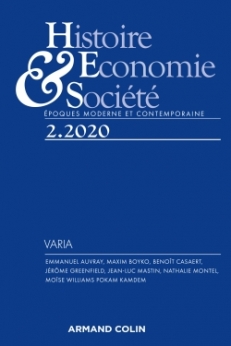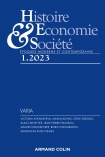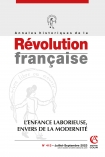
Histoire, Economie et Société (2/2020)
Pour acheter ce numéro, contactez-nous
Recevez les numéros de l'année en cours et accédez à l'intégralité des articles en ligne.
Au début des années 1980, l’État du Cameroun s’associe aux compagnies pétrolières Elf, Mobil, Pecten et Total pour étudier les possibilités de liquéfier le gaz naturel et de l’exporter vers le marché européen. Les associés se retrouvent entre 1980 et 1983 en conseil de gérance de la société en formation pour évaluer l’avancement du projet et déterminer ainsi leur implication dans sa réalisation. Face aux incertitudes issues de ces négociations, ces compagnies émettent cependant des doutes sur la viabilité économique de cette initiative. En s’appuyant notamment sur les archives du groupe Total, l’évocation des discussions entre les différents acteurs permet d’expliquer l’attitude prudente des compagnies pétrolières et l’échec de ce projet.
In the early 1980s, the State of Cameroon was joined by the oil companies Elf, Mobil, Pecten and Total to study the possibilities of liquefying natural gas and exporting it to the European market. These partners meet between 1980 and 1983 in the board of managers of the company to assess the progress of the project and thus determine their involvement in its implementation. However, facing the uncertainties arising from these negotiations, foreign companies question the economic viability of that initiative. Relying on the archives of the Total group, the analysis of the talks between the various actors explains the cautious attitude of the oil companies and the failure of this project.

